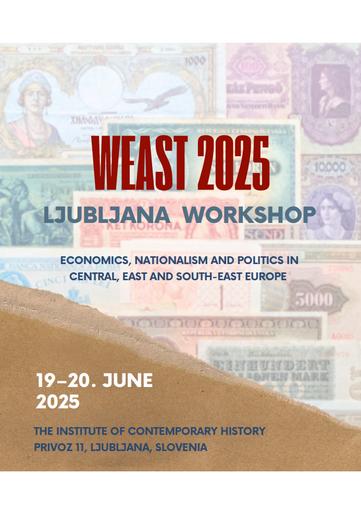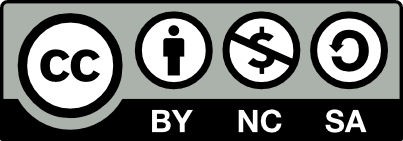/
Dogodki
/
Konference
Economic nationalism or clash of interests narrated with nationalism’s vocabulary?
Conflicts around the nascent Hungarian maritime navigation


To delo avtorja Veronika Eszik je ponujeno pod Creative Commons Priznanje avtorstva-Nekomercialno-Deljenje pod enakimi pogoji 4.0 Mednarodna
Datoteke (1)
Opis
In my contribution I would present a case study shedding light on the quasi-impossibility to make a proper distinction between economic nationalism and pure business conflicts narrated by nationalism’s vocabulary in the context of the developing maritime infrastructure of Fiume/Rijeka. Late Nineteenth Century Fiume was a small but important international port city which, following the Compromise concluded by the Hungarian and the Croatian part of the Hungarian Kingdom (1868) was administered directly from Budapest as a so-called corpus separatum while it lay on Croatian soil. The only Hungarian seaport was a microcosm of city dwellers of various ethnicities, speaking different languages and exercising different economic activities. Due to massive investments of the Hungarian state in five decades, this fishing town became the tenth European seaport by the volume of its trade. I argue that given the Hungarian elite’s identification with this modernising fever, economic debates could often be seen as nationality conflicts. Anti-modern gestures and alternative modernising projects thus were often dressed up in nationalist costumes, partly because the vocabulary and the symbolism of nationalism was accessible (as it was spread among others by popular press) and made it easier to grasp complex phenomena of other nature as well. To test my hypothesis, I examined the archival documents of different shipping companies, state subsidised and independent alike. The documentation of the Hungarian-Croatian Marine Steam Shipping Company shows how the state-owned company was blamed for the distortion of the market and for the discrimination of local rival firms. However, archive documents also attest that both the Budapest-based ministries’ and the Hungarian Royal Maritime Authority made efforts to reduce market distortions originated from capital concentration. Therefore, the methodological challenge of this investigation to distinguish between real national conflicts and conflicts merely narrated by nationalism’s words.
Metapodatki (12)
- identifikatorhttps://hdl.handle.net/11686/71103
- naslov
- Economic nationalism or clash of interests narrated with nationalism’s vocabulary?
- Conflicts around the nascent Hungarian maritime navigation
- avtor
- Veronika Eszik
- soavtor
- Oliver Pejić (mod.)
- predmet
- nacionalizem
- gospodarstvo
- Madžarska
- Hrvaška
- pomorstvo
- opis
- In my contribution I would present a case study shedding light on the quasi-impossibility to make a proper distinction between economic nationalism and pure business conflicts narrated by nationalism’s vocabulary in the context of the developing maritime infrastructure of Fiume/Rijeka. Late Nineteenth Century Fiume was a small but important international port city which, following the Compromise concluded by the Hungarian and the Croatian part of the Hungarian Kingdom (1868) was administered directly from Budapest as a so-called corpus separatum while it lay on Croatian soil. The only Hungarian seaport was a microcosm of city dwellers of various ethnicities, speaking different languages and exercising different economic activities. Due to massive investments of the Hungarian state in five decades, this fishing town became the tenth European seaport by the volume of its trade. I argue that given the Hungarian elite’s identification with this modernising fever, economic debates could often be seen as nationality conflicts. Anti-modern gestures and alternative modernising projects thus were often dressed up in nationalist costumes, partly because the vocabulary and the symbolism of nationalism was accessible (as it was spread among others by popular press) and made it easier to grasp complex phenomena of other nature as well. To test my hypothesis, I examined the archival documents of different shipping companies, state subsidised and independent alike. The documentation of the Hungarian-Croatian Marine Steam Shipping Company shows how the state-owned company was blamed for the distortion of the market and for the discrimination of local rival firms. However, archive documents also attest that both the Budapest-based ministries’ and the Hungarian Royal Maritime Authority made efforts to reduce market distortions originated from capital concentration. Therefore, the methodological challenge of this investigation to distinguish between real national conflicts and conflicts merely narrated by nationalism’s words.
- založnik
- Inštitut za novejšo zgodovino
- datum
- 19. 06. 2025
- tip
- video
- jezik
- Angleščina
- jeDelOd
- pravice
- licenca: ccByNcSa
